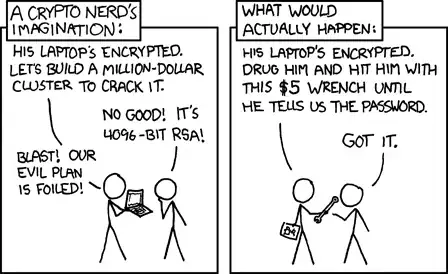I guess am a bit of a paranoid ha... anyway i encrypted my HDD with truecrypt using all printable ASCII characters and the password is 64 characters long. It is quite random, certainly no dictionary words but it is still possible to memorize easily.
Can it be brute-forced? The thing is, i know that its supposed to be secure, but isn't there a chance that someone can just guess the password after like 10 attempts?
Surely that possibility exists. Sometimes lightning strikes as they say.
